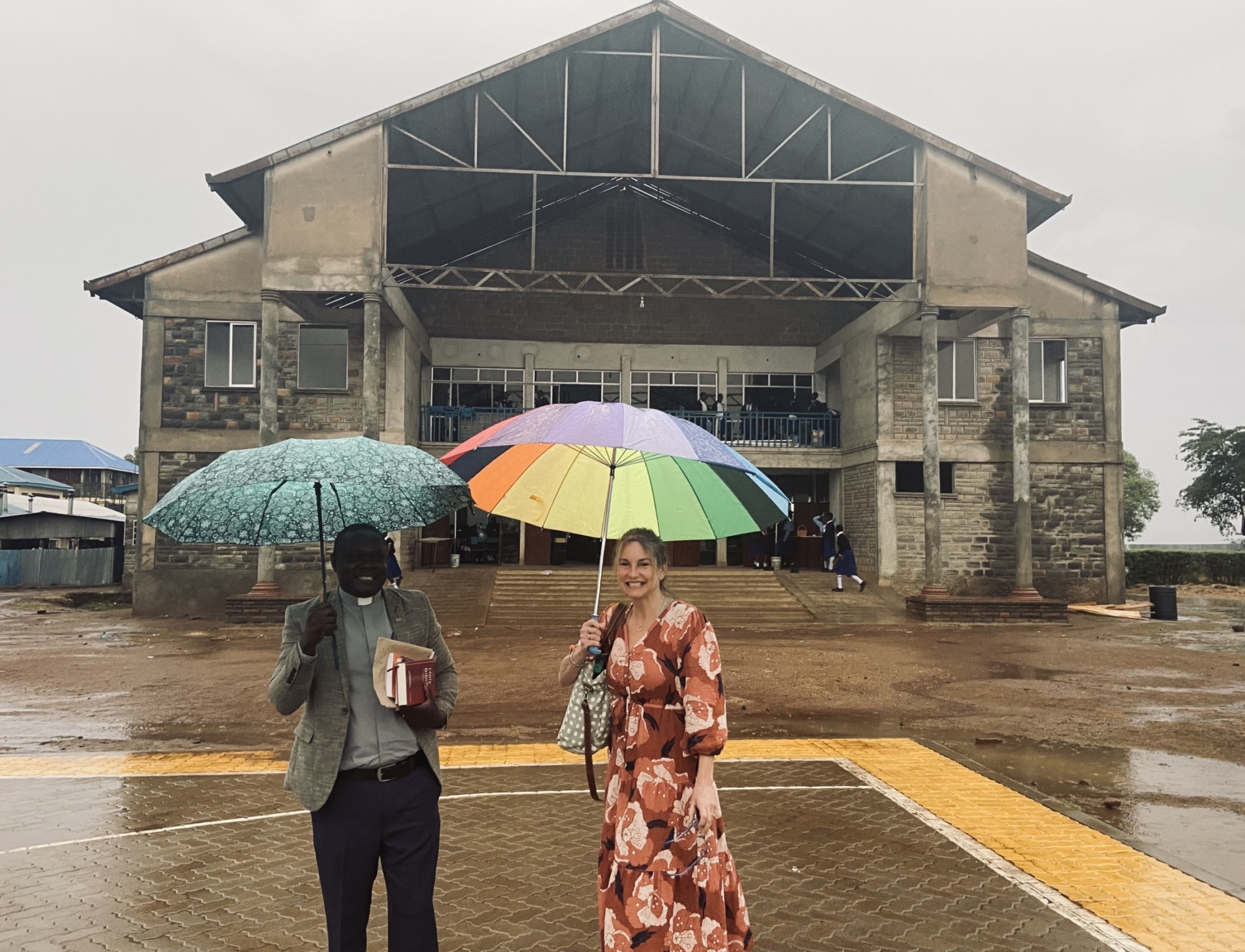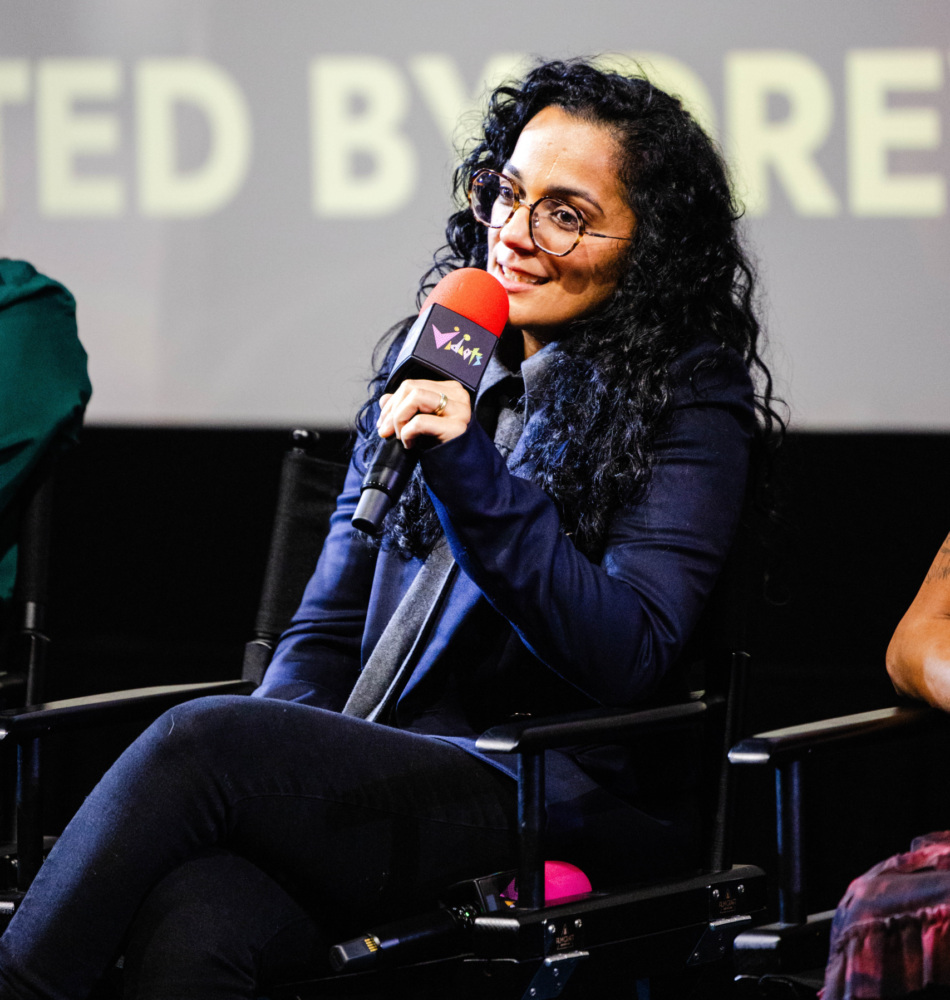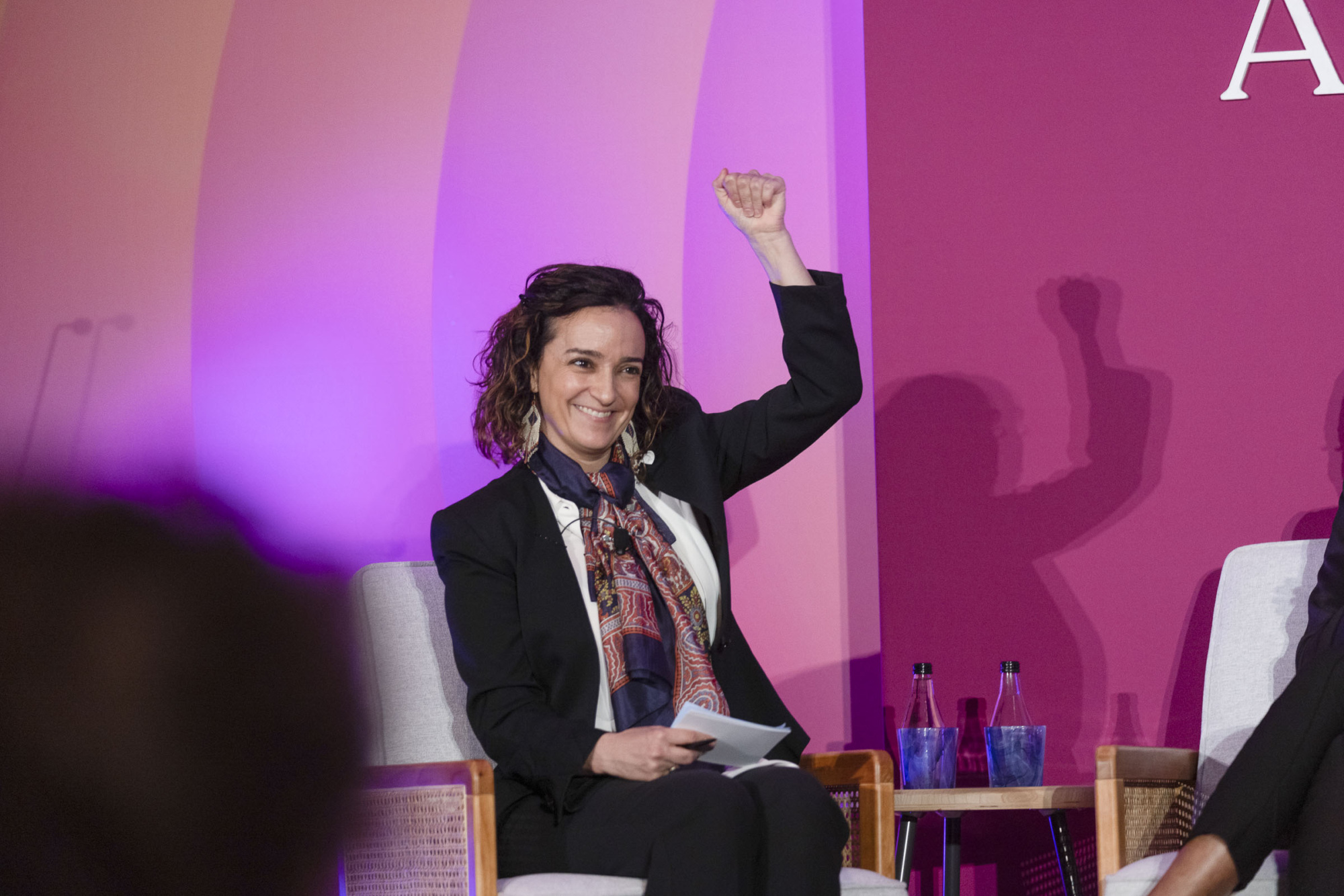Emily Nielsen Jones | Boston, MA
Photo: Emily Nielsen Jones with Reverend Domnic Misolo, co-founder of the Girl Child Long Walk project.
What does it mean to you to be part of a community that shares your values and vision for a gender equal world? How do you apply the idea of community to your broader work?
When I was just beginning my philanthropic journey, I had the great privilege of meeting Helen LaKelly Hunt, one of the founders of Women Moving Millions. Helen gave me a title—“donor activist”— which helped me embrace what felt like an uncertain and somewhat uncomfortable role navigating wealth accumulation, faith, and feminism. I had read her book Faith and Feminism: A Holy Alliance and felt an instant resonance that affirmed the path I was on. At the time, my husband and I had recently launched the Imago Dei Fund in 2009 after several years of soul-searching conversations about how to steward the resources at our disposal more faithfully.
Helen’s mentorship showed me how much I needed community around me. Early on, I often felt very alone grappling with the complexities of wealth in a world of widening economic inequality. Looking back on my philanthropic journey over the past fifteen years, I so appreciate the touchpoints along the way with inspiring women rolling the massive boulder of gender equality up the patriarchal mountain. I love the feeling of collegiality and inspiration when I walk into any WMM gathering – “moving millions” together to manifest the gender equal world we want for ourselves and our daughters and their daughter’s daughters.
Being part of this community has nurtured and strengthened my commitment to co-creating a more just, free and sustainable world. At Imago Dei, we have embraced the idea of community and relationship as central to our work, striving to build deep connections and walk alongside our partners in our shared commitment to human flourishing.
What is the most impactful investment you have made thus far through your gender lens philanthropic giving? Why did this gift resonate with you in particular?
My philanthropic “lane” lies at the sensitive nexus of gender, faith, and patriarchy. Growing up in evangelical Christianity, I witnessed how deeply embedded patriarchal norms could be in religious traditions. Moments like watching only boys be invited to read aloud the Bible in Sunday School shaped my perspective profoundly. At every bend of my religious journey, I sought ways to challenge these norms and affirm the dignity and equality of women and girls, especially within faith-based contexts.
Soon after we started our foundation, I began seeing and hearing from women’s rights leaders that the needle was moving backwards on women and girls’ equality. Time and time again, fundamentalist, patriarchal forms of religion aligned with authoritarian political movements played a role in this shift backwards. In 2018, we launched The Girl Child & Her Long Walk to Freedom with the Institute for Faith and Gender Empowerment to nurture a community of faith-inspired change agents to put “faith to work through love” to liberate the world from the deep roots of patriarchy. Faith leaders are often key influencers in their communities, and their support creates momentum for longer-term, widespread change. This upstream work is critical— it sustains gender equality efforts by addressing their root causes.
What is your process for identifying and supporting grantee partners who are aligned with your values and who you believe will move the needle on advancing gender equality?
At Imago Dei, we fund in a holistic way using a gender-lens with a strong lean toward supporting faith-inspired change-agents in their own context to transform the deep roots of gender-based injustice. No single solution can fully address complex issues, so we see any organization we fund as part of a larger web of change.
One way we support our partners is by giving multi-year, unrestricted grants (over 80% of our funding) to give them the flexibility to continuously engage with their communities and adapt their programs as needed. We also offer a separate, dedicated grant to partners with annual budgets under $4 million for well-being in their organization. We’ve heard from our partners that these funds not only help sustain their personal passion and resilience but also enhance the overall effectiveness and impact of their organizations.
What opportunities do you see for impact in the wider philanthropic landscape and what advice would you give to others considering a bold investment in women and girls?
There are so many sectors that need more investment, but I would make the case that the foundational work of basic gender norms change is a compelling and much needed investment.
In collaboration with six partners working at the nexus of faith, patriarchy, and holistic global development, we are in the process of developing a set of case studies exploring the impact of Imago Dei and others like us funding long-term gender norms transformation efforts. We’ve learned that a combination of engaging religious leaders, drawing on their sacred texts and teachings to promote messages of respect, dignity and equality, training community gender champions to advocate for change, and expertly facilitated community dialogue with active participation of women and men can yield incredible fruit.
Faith leaders in particular can be powerful agents for change in shifting harmful gender norms. As norms transformation takes trust across a range of stakeholders and building trust takes time, long-term, patient investments in this work are greatly needed! This work gives a window into the real heartbeat of my philanthropic why and the work of the Imago Dei Fund— we’ll be excited to share it with you later this year!


